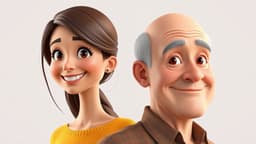Home / Health / Hearing Loss Linked to Faster Brain Aging, Warns Mumbai Surgeon
Hearing Loss Linked to Faster Brain Aging, Warns Mumbai Surgeon
12 Nov
Summary
- Orthopaedic surgeon warns hearing loss accelerates brain aging
- High-frequency hearing tests can assess ear health and age
- Practical tips to safeguard hearing and prevent cognitive decline

In a recent Instagram video, Dr. Manan Vora, a Mumbai-based orthopaedic surgeon and co-founder of NutriByte Wellness, is sounding the alarm on the dangers of early hearing loss. According to the expert, our ears tend to age faster than the rest of our body, and this can have serious consequences for our cognitive health.
Dr. Vora explains that high-frequency hearing tests available online can help people assess the health of their ears by measuring the highest frequency they can detect. He notes that he, at the age of 32, could hear up to 16,500 Hz, indicating his ears are relatively young. However, he warns that factors like loud music, long earphone sessions, and poor lifestyle habits can wear out the tiny hair cells in the cochlea, leading to the loss of high-frequency hearing.
The orthopaedician stresses that this is more than just a hearing problem, as untreated hearing loss has been linked to faster cognitive decline, memory problems, and even social withdrawal. To help people protect their ears and preserve their hearing, Dr. Vora shares four practical tips: turn down headphone volume, take listening breaks, fix sleep and hydration, and don't ignore early signs of hearing loss like ringing or muffled hearing.




